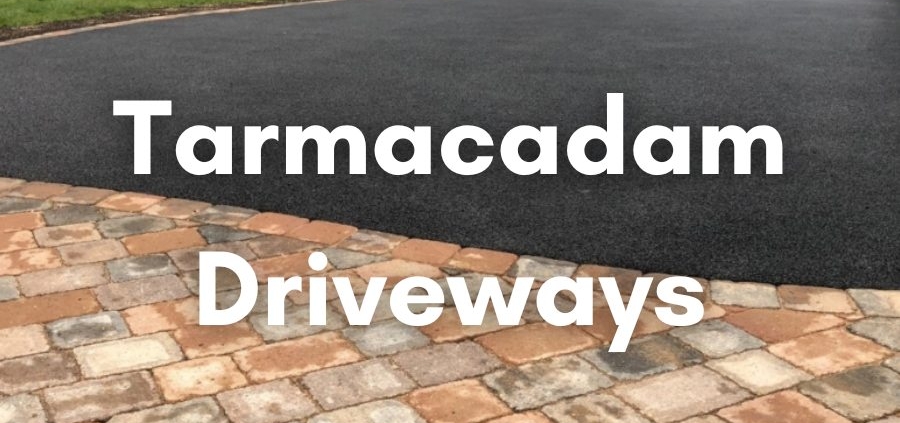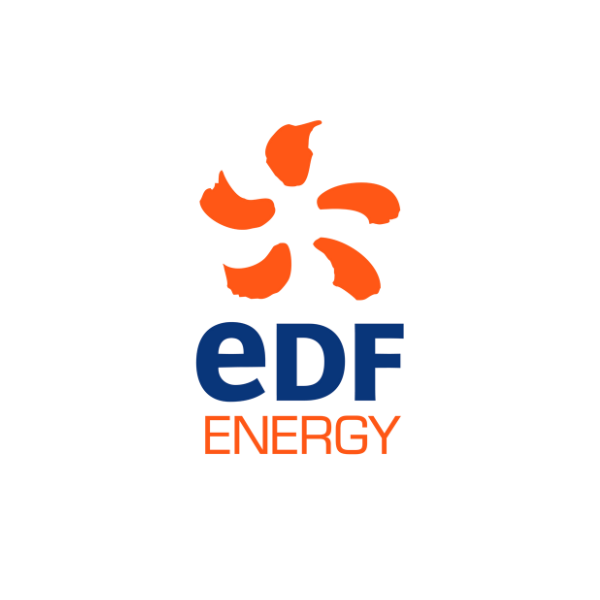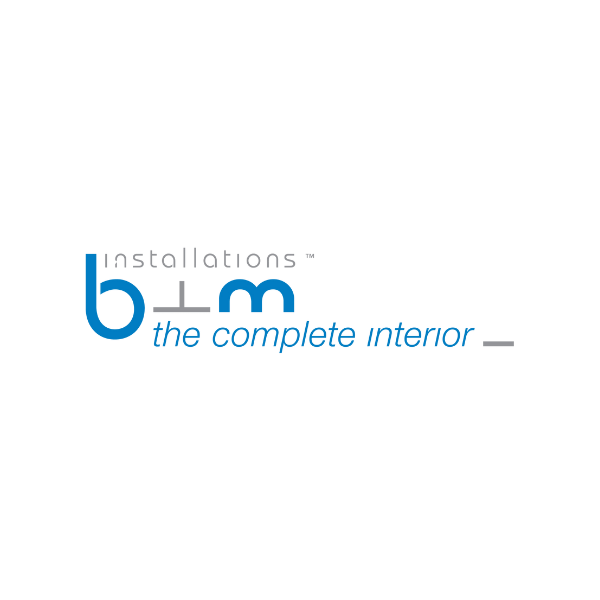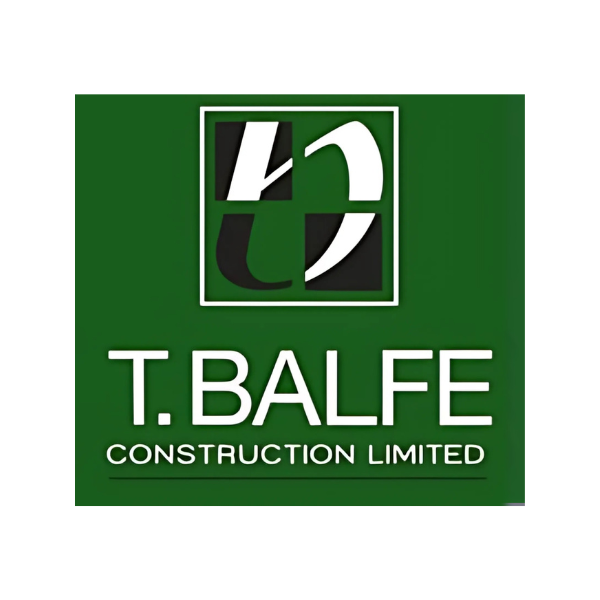Tarmac vs. Block Paving: Which Is Best for Your Driveway or Car Park in 2025?
When it’s time to resurface a driveway or lay a new commercial car park in 2025, chances are you’ll be deciding between two popular options: tarmac and block paving. Both materials have evolved to meet the needs of modern homeowners and businesses, offering their own mix of cost efficiency, durability, aesthetics, and environmental performance. The big question: which one is best for your project?
Let’s break it down so you can make an informed choice that matches your budget, style, and lifestyle.
Tarmac Driveways & Car Parks: Core Strengths and Considerations
Cost Efficiency and Fast Installation
One of the biggest advantages of tarmac (also known as asphalt) is its affordability. Tarmac projects typically come in at a lower initial cost than block paving, both in terms of materials and labour. If you want to maximise value for money—especially for large areas like car parks or lengthy driveways—tarmac’s budget-friendly nature is hard to beat.
The installation process is pretty speedy, too. Experienced teams like J.C. Surfacing Ltd can often complete residential driveways in just a day or two, reducing disruption to your household or business.
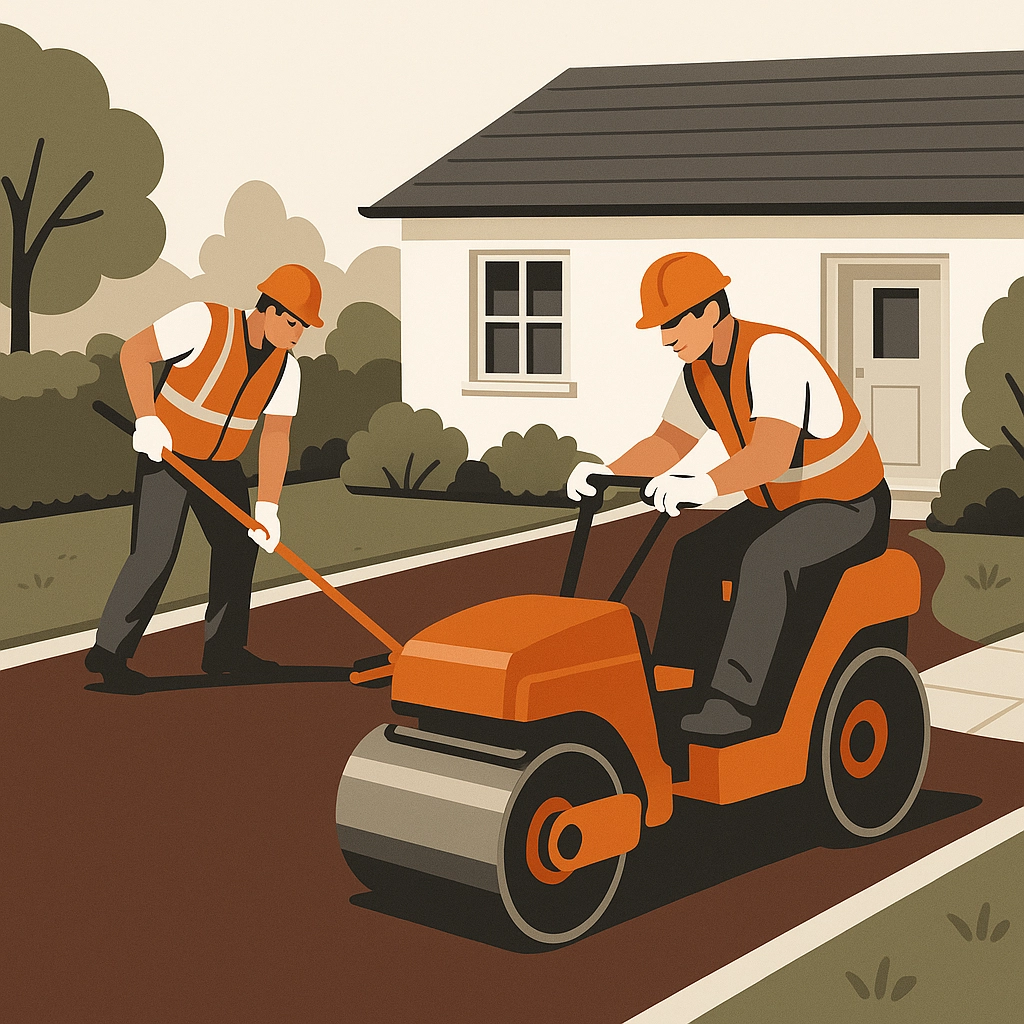
Durable and Weather-Resistant
A properly laid tarmac driveway is tough. It’ll resist cracking under pressure and shrug off the worst of British weather—including those occasional freeze-thaw cycles that can ruin lesser materials. Tarmac’s smooth, joint-free finish helps minimise water pooling, and with the right surface gradient, drainage is rarely an issue.
When maintained, a tarmac drive can last up to 20 years before it needs significant resurfacing—a solid result for the price.
Low Ongoing Maintenance
Tarmac naturally resists oil, water, mould, weeds, and general grime. Maintenance needs are minimal: a yearly power wash and occasional fissure repair is usually enough. This is why tarmac is often chosen for busy commercial car parks and by homeowners who’d rather not fuss with regular upkeep.
Be Mindful in the Heat
There is one downside: tarmac doesn’t love heat waves. Prolonged periods of scorching sun can cause it to soften, leading to dents, deformation, or surface cracks over time. While this is less of a problem in most of the UK, it’s worth considering if summers keep getting hotter.
Block Paving: Core Strengths and Considerations
Unbeatable Aesthetic Versatility
Block paving is the designer’s dream. With a huge array of colours, layouts, sizes, and patterns—including traditional herringbone, contemporary basket-weave, and bespoke mosaics—there’s a block for every style of property. This flexibility can give your home a real kerb appeal boost and might even raise its market value. For commercial spaces, different colour zones or layouts can help with wayfinding and organisation.
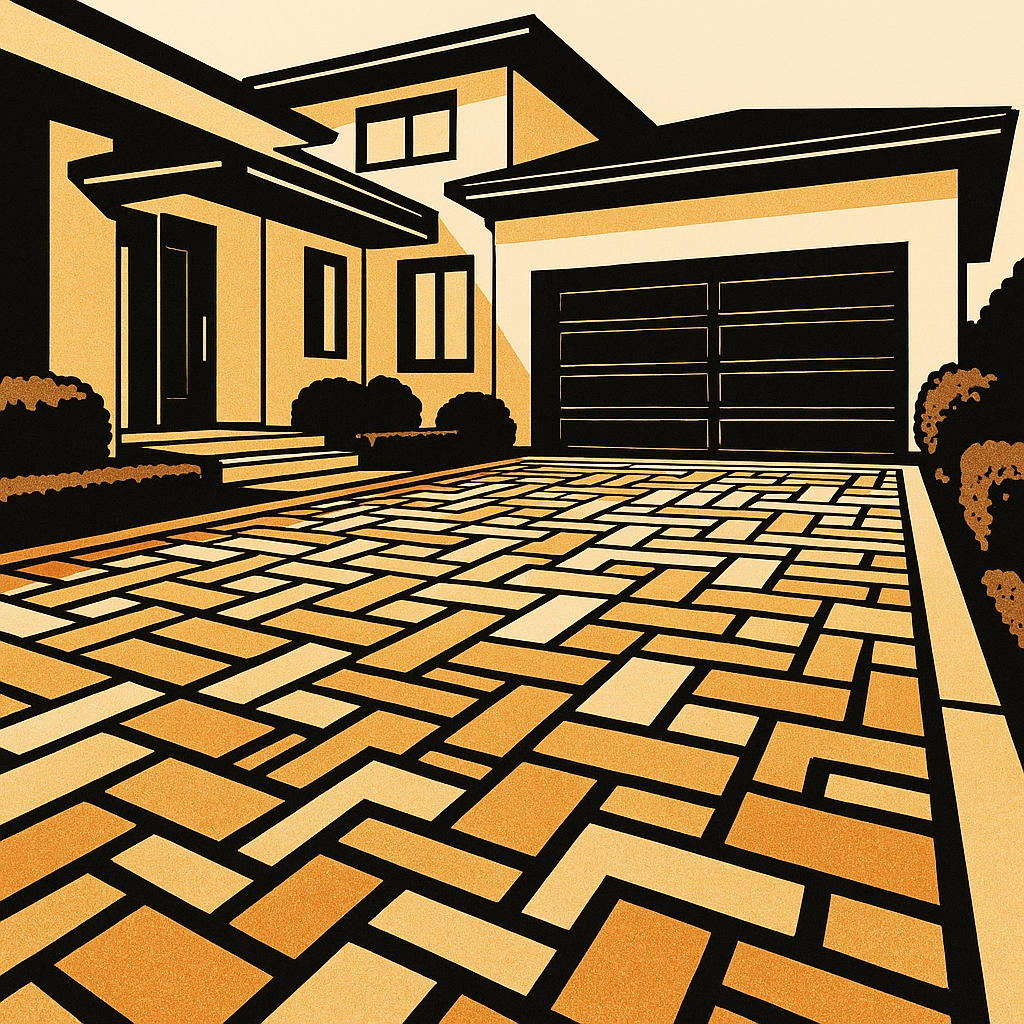
Longer Lifespan & Simple Repairs
Block paving comes with a higher price tag upfront, but that investment pays off in longevity. With good care, block paving can last 25 years or more without needing full replacement. Crucially, if an area gets stained or damaged, you can simply swap out the affected blocks—meaning repairs are quick, affordable, and hassle-free.
Drainage and Environmental Performance
Many modern block paving solutions are permeable, which means rainwater drains through the gaps rather than running off into the street. This helps reduce flooding risk, replenishes groundwater, and often meets local SUDS requirements (Sustainable Urban Drainage Systems). If environmental credentials matter to you, block paving wins big in this area.
Stays Cool in the Heat
Unlike tarmac, block paving won’t sag or soften during a heatwave. Its modular design allows it to flex with temperature changes, reducing the risk of major cracks or upheaval. This makes it an excellent choice for south-facing drives, patios, and anywhere you'll want things looking sharp all summer.
More Maintenance Required
Block paving does demand a little more attention. Without regular sweeping, moss and weeds can sprout between the joints, and every few years you’ll want to reapply a protective sealant. Still, with good care, you’ll keep it looking as good as new for decades.
Head-to-Head Comparison Table
The table below sums up the key differences so you can see, at a glance, which option best meets your needs.
| Feature | Block Paving | Tarmac |
|---|---|---|
| Initial Cost | Higher (materials + labour) | Lower (budget-friendly) |
| Lifespan | 25+ years | 12–20 years |
| Heat Resistance | Excellent (doesn’t soften) | Poor (softens in high temps) |
| Cold Resistance | Very good, can flex with freeze-thaw | Outstanding, shrugs off freeze-thaw |
| Drainage | Excellent (permeable options available) | Good (requires slope for runoff) |
| Maintenance Frequency | Weed & moss control, sealing every 2-3yrs | Minimal: occasional cleaning/repair |
| Repair Ease | Individual block replacement | Patches or resurfacing |
| Design Options | Extensive colours, shapes, patterns | Limited (standard black/red) |
| Installation Speed | Slower, labour-intensive | Quick and straightforward |
| Environmental Benefits | Permeable SUDS compliant solutions | Standard surface, less eco efficiency |
Which Should You Choose in 2025? Scenario-Based Suggestions
Go for Tarmac If…
- Budget is Tight: You want the most surface for your spend.
- You Need It Fast: Minimal installation time and interruption.
- Weather Is Challenging: Particularly if freeze-thaw is a concern.
- Ongoing Maintenance Isn’t Your Thing: You’d prefer a “lay it and leave it” solution.
- Heavy or Commercial Use: Car parks, long drives, farm roads, and places with lorries/articulated vehicles.
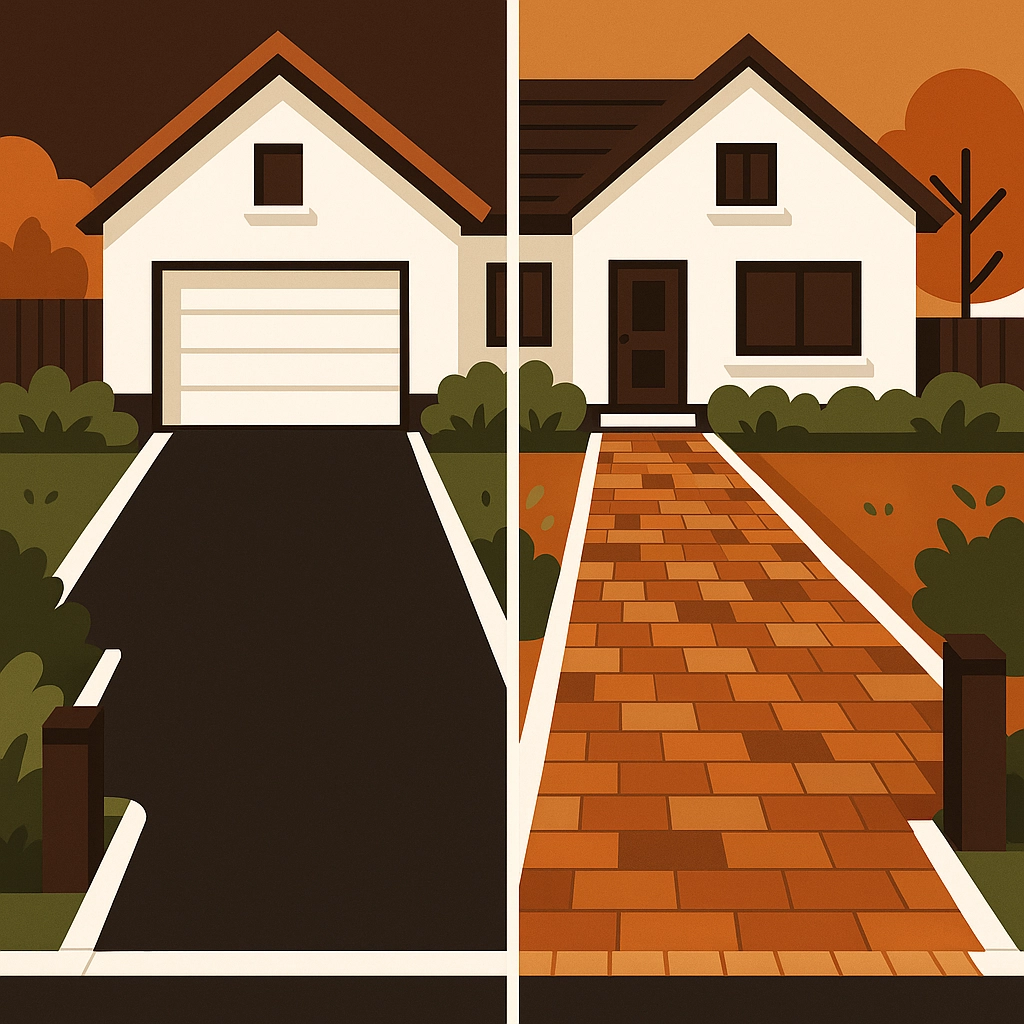
Go for Block Paving If…
- Curb Appeal Matters: You want the sharpest, most bespoke finish in your street.
- Long-Term Value: Willing to pay more upfront for decades of service.
- You Live Somewhere Hot: It’ll look great even in prolonged summer heat.
- Drainage or Eco Credentials Count: Sustainable, permeable systems help the environment.
- You Like Options: Huge range of colours and layouts to choose from.
- You’re Happy to Dedicate Some Maintenance Time: Or don’t mind bringing in the professionals every couple of years.
Final Thoughts
Both tarmac and block paving will continue to be popular choices for driveways and car parks across the UK in 2025. In short:
- Tarmac remains king for budget-conscious projects, speedy install, and tough, low-fuss surfaces.
- Block paving leads for those who prioritise style, drainage, and longevity, with an eye on property value and environmental responsibility.
Still not sure which way to go? Check out our gallery of completed projects for real-world inspiration or get in touch with J.C. Surfacing Ltd for expert advice and tailored quoting. We’re here to help you make the right choice for your property—today, tomorrow, and for years to come.
For more guidance or to request a site visit, reach out via our contact page.
J.C. Surfacing Ltd – Building better driveways and car parks across the UK.

